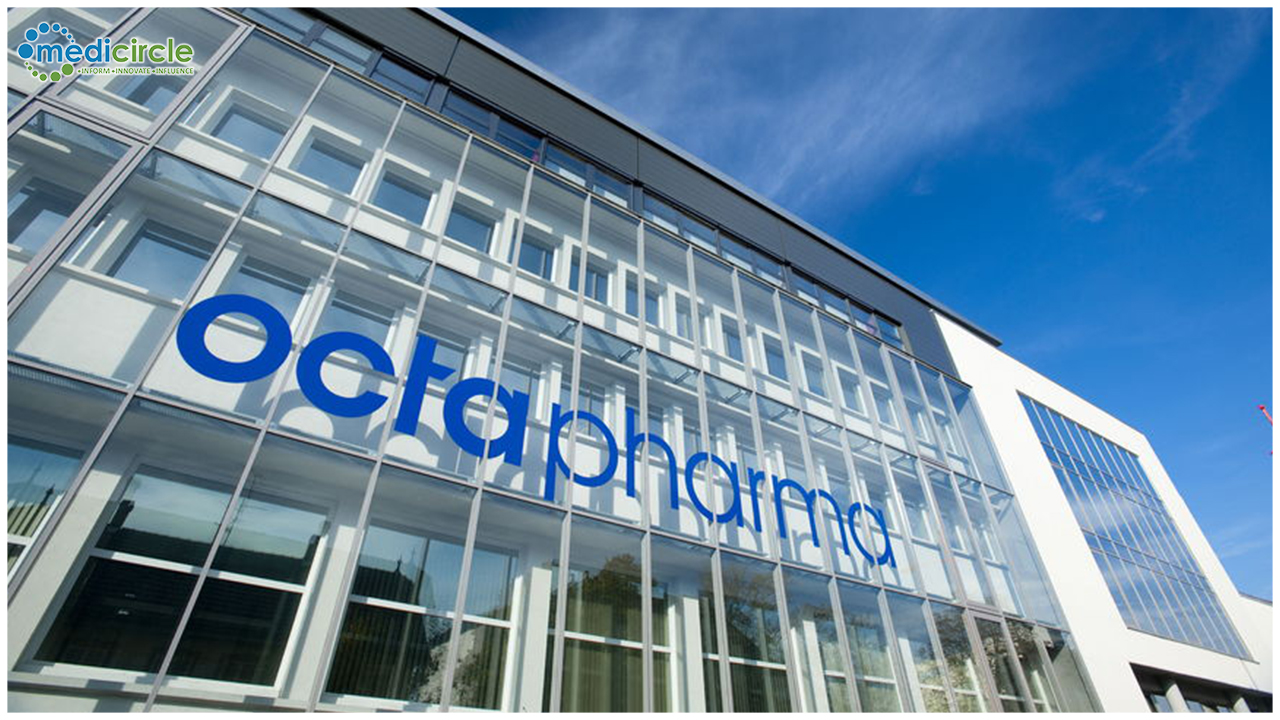Octapharma had a prominent role as a Sponsor of the 13th Annual Congress of the European Association for Haemophilia and Allied Disorders (EAHAD) Congress this week, which takes place in The Hague, The Netherlands, from February 5–7, 2020. Octapharma’s activities at the Congress included a scientific symposium that focused on addressing the needs of patients with haemophilia A.
The symposium “Unravelling the challenges of haemophilia A: Efficacy, immunogenicity and inhibitor management with Nuwiq® (simoctocog alfa)” discussed the latest developments with Nuwiq®, a recombinant FVIII (rFVIII) of human cell line origin, as well as new approaches to improve understanding of the optimal treatment approach for each individual with haemophilia A. The symposium was chaired by Maria Elisa Mancuso (Ospedale Maggiore Policlinico, Milan, Italy).
Leading experts presented key data on the efficacy and immunogenicity of Nuwiq®. John Pasi (The Royal London Hospital, London, UK) described the outcomes of patients who followed a different prophylaxis regimen based on individual pharmacokinetic (PK) assessment in the NuPreviq study. The large majority (90%) of the 40 patients remained free from spontaneous bleeds during personalised prophylaxis with Nuwiq®, and 85% (34/40) of patients were treated twice weekly or less, demonstrating the value of personalised prophylaxis with Nuwiq® for identifying patients who can benefit from less frequent dosing while maintaining effective bleed protection. The Nuwiq® Summary of Product Characteristics was revised in 2019 to include these data. John Pasi also shared updates on tools for population-based PK analysis to guide prophylaxis.
For previously untreated patients (PUPs), the risk of inhibitor development remains a concern. Ri Liesner (Great Ormond Street Hospital, London, UK) presented the final results of NuProtect, the largest prospective study of a single FVIII product (Nuwiq®) in true PUPs. The cumulative incidence of inhibitors and of high-titre inhibitors in 105 PUPs receiving Nuwiq® was 27.9% and 17.6%, respectively. Dr Liesner also highlighted that no PUPs with non-null F8 mutations developed inhibitors in the NuProtect study. These data suggest that Nuwiq® exhibits an immunogenicity profile more similar to that of plasma-derived FVIII containing von Willebrand factor (VWF) than that of rFVIII products derived from hamster cell lines analysed in the SIPPET study 1,2.
The symposium continued with an informative overview by Carmen Escuriola (Haemophilia Centre Rhein-Main, Mörfelden-Walldorf, Germany) of ongoing strategies to understand the impact of different treatment approaches for patients with haemophilia A and inhibitors. Increased understanding of factors impacting induction of immune tolerance and the impact of treatment strategies on long-term outcomes, including joint health, will help to inform treatment decisions for inhibitor patients.
To complete the symposium, Sander Botter, a scientist from the Balgrist Campus AG, Zürich, Switzerland, discussed the roles of FVIII within and beyond haemostasis and the wider importance of FVIII in the context of treating haemophilia A. Dr Botter highlighted the evidence that FVIII may be critical for joint and bone health, and presented new studies that hope to characterise the impact of treatment choice on bone and joint health in people with haemophilia A.
“We are proud to be able to continue to share excellent data with Nuwiq® that demonstrate its value for meeting the needs of each individual with haemophilia A, from the first treatment to long-term protection”, said Dr Larisa Belyanskaya, Head of IBU Haematology at Octapharma.
Olaf Walter, Board Member at Octapharma, added that “This symposium truly demonstrates our commitment at Octapharma to improving the lives of people with bleeding disorders. We are proud to be able to continue to share the benefits of Nuwiq®, which we believe reflect the success of our approach to developing a recombinant FVIII of human cell line origin”.

 Octapharma demonstrates commitment to improving haemophilia, a treatment at the 13th Annual Congress of the European Association for Haemophilia and Allied Disorders (EAHAD)
Octapharma demonstrates commitment to improving haemophilia, a treatment at the 13th Annual Congress of the European Association for Haemophilia and Allied Disorders (EAHAD)










.jpeg)













.jpg)



.jpg)

